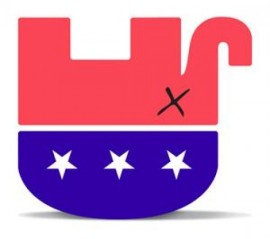Today we try something new. I typically give you my thoughts on big topics in small doses. I often come across great articles, typically longform (5,000 words or more), that beg to be shared and when it fits, I include a link in one of my posts. Today, I’ll be taking one of those articles, an interview actually, and breaking it down for you. I still encourage everyone to read the original, but if you don’t have time, then this is for you. Think of this post as a longform article review. You know those people who never read books, but do read book reviews, and talk at dinner parties as if they’ve read everything? Just think, you can be the gal or guy who waxes eloquently about that fascinating article or interview you read earlier in the week.

The interview in question was with President Obama and it was published yesterday in Rolling Stone. It wasn’t a groundbreaking interview, but it was insightful. Also, given that Mitt Romney has finally solidified his position as the presumptive GOP presidential nominee, it makes sense to take a look at the President’s first major interview of the campaign season. The following is a summary of the President’s remarks and my analysis.
2012 Campaign
The President: Leaders of the Republican party are not representative of mainstream Republican America. Republicans today are pretty much the same as they have always been, but the party has moved so far to the right that even Ronald Reagan, the GOP saint, would fail to garner his party’s nomination today. The economy is still struggling but a full recovery will take time and a Romney administration would be just another repeat of the policies of 2000-2008, which were, by and large a failure.
mrcyriac: This is basically his way of taking a jab at the opposition while still courting a few moderate Republican votes in November – GOP leaders are bad, but the GOP voters are alright. Part of the difficulty for Obama’s 2012 campaign is that in 2008, he ran on a platform of change. Three years later, things do not feel much better. Democrats argue that it could have been a lot worse and that we are in a much better position than Europe and other advanced industrial countries, but that’s a far cry from “change you can believe in”.
The role of government
The President: Folks like Rush Limbaugh and Grover Norquist have done the country a disservice by convincing people that government is always the problem. “Let’s redirect the Republican Party back to those traditions in which a Dwight Eisenhower can build an interstate highway system.” A active government that provides safety nets is key to promoting the sort of productive risk-taking that helped the American economy to grow for generations.
mrcyriac: The President really doesn’t like Limbaugh or Norquist and can’t believe that he is being accused of being a socialist when most of his ardent supporters consider him to be, at least partially, a sellout to the right.
The Middle East
The President: It’s complicated
mrcyriac: Yes.
Everything else
The President: Regarding the war on drugs, until Congress changes the laws, the executive branch must enforce those laws. Regarding marriage equality, we’re making progress on LGBT issues, but “I’m not going to make news in this publication.” Regarding race, it’s almost always going to be an issue but much progress has been made. Also, climate change is real and anyone who dismisses it is a fool.
mrcyriac: These are mostly issues that Obama would rather not discus in a major interview because they might alienate him from those precious moderate Republican voters. By enforcing drug laws with greater zeal than anyone expected, he’s proving that he’s no hippie. He wants to come out in favor of marriage equality, but is probably fixated on some poll in some swing state that indicates that now is not the time. As for race, he tries to play it cool, but I think he hates talking about it, even more so than Republicans hate hearing about it. Obama has no problem discussing climate change, but does not, and will not, make it a priority until voters are scared of rising sea levels and vengeful polar bears. Nothing motivates voters like fear.
Things Obama likes
When I found out, years ago, that Obama was a fan of The Wire, as an ardent fan of the show, my appreciation for him went up a bit. In case you’re wondering if any of your favorites are on Obama’s like list, yesterday’s interview included praise for the Daily Show with Jon Stewart (actually, his exact words were “I think Jon Stewart’s brilliant”), Al Green, Homeland, the New Yorker, the Atlantic, Andrew Sullivan and Mick Jagger.
Outlook
The interview was quite fluffy, but the hints of a more populist tone than in 2008 were evident. Four years ago, the conversation that Obama was commanding was dominated by the need for change, and a call for unity. There is almost none of that now. The debt ceiling negotiations last summer mark a sort of last attempt to politely reach across the aisle – frustrated by Republican obstruction, the President has begun to use a lot more executive authority in the past year. Expect to see a candidate Obama who is a lot more aggressive and progressive than he last last time. I doubt Obama will go full bull moose any time soon, but this interview is a good example of the President testing the waters.

 The popular narrative of American individualism may explain why the rock & roll pantheon consists of English bands and lone American men.
The popular narrative of American individualism may explain why the rock & roll pantheon consists of English bands and lone American men.